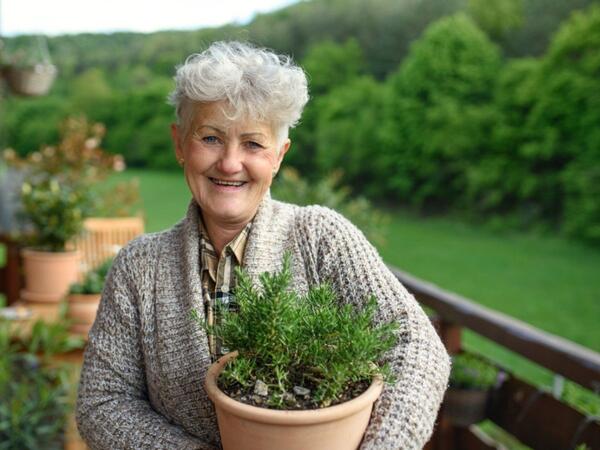
Can Psilocybin Help Older Adults?
Healthcare professionals are always looking for ways to help older adults manage the pain and discomfort associated with common ailments. While they typically explore pharmaceutical solutions for a range of conditions, they are now beginning to look at natural options.
Psilocybin, also known as magic mushrooms, is a naturally occurring psychedelic compound and a species of fungi. While you can purchase a range of products like a Mantra Bars Euphoria Bar for recreational purposes, psilocybin is also being explored in its natural form for its medicinal value. A great deal of research is still required. However, we may see psilocybin used to help older adults in the future for the following ailments and conditions:
Dementia
We know there are currently no known disease-modifying treatments for any form of dementia, including Alzheimer’s disease. Dementia is progressive and gradually affects memory, language, problem-solving, and thinking abilities. Eventually, this disease interferes with everyday life.
However, scientists have been looking at psychedelics like psilocybin as a possible treatment. Medical professionals understand that psychedelics induce brain plasticity and change the connections between brain regions. As a result, researchers explored psychedelics due to its cognitive benefits.
While we still haven’t developed a viable treatment for dementia, psilocybin and lysergic acid diethylamide (LSD) may prove valuable. There’s potential for them to influence and enhance the neuronal connectivity in the brain, restore brain plasticity, and reduce inflammation. These psychedelics may even improve cognition. It may only be a matter of time before we see psilocybin rolled out as a potential treatment option for people living with dementia.
Depression
While depression can affect people of different age groups, it’s commonly associated with older adults. Loneliness and social isolation can contribute, and at least 14% of adults aged 60 and over have a mental disorder.
We have many natural and pharmaceutical options to explore for depression, such as antidepressants and therapy. However, psilocybin is undoubtedly one of the more unique and recent ones. It’s believed that it may help with treatment-resistant depression by encouraging the growth of new connections between the brain’s neurons. While more research is needed to balance brain plasticity and avoid hallucinogenic effects, many seniors living with depression may benefit from psilocybin in the future.
Post-Traumatic Stress Disorder (PTSD)
While we commonly associate post-traumatic stress disorder (PTSD) with war veterans, this disorder can affect anyone who has experienced a trauma. It’s also reasonably common in seniors.
PTSD in seniors affects their ability to deal with life stress and handle the developmental stages of later life. Like everyone else, seniors can also be diagnosed with PTSD due to trauma from any part of their life.
While healthcare professionals might recommend many approaches to PTSD, such as psychotherapy and antidepressants, psilocybin might become a valid treatment option in the future. Current research suggests that the most common treatment options for PTSD aren’t always helpful. They don’t typically work well for people who have chronic PTSD or experienced multiple traumas.
People who have PTSD may wish to explore alternative options like psychedelics. While research is in its infancy, animal studies have found that the psychedelic compound in psilocybin may stimulate nerve cell regrowth in the areas of our brain responsible for emotion and memory. The mice that were given psilocybin could overcome fear conditioning better than mice receiving the placebo. This research suggests that psilocybin may assist with breaking the trauma cycle in patients with PTSD.
Substance Use Disorder
Substance use disorders in older adults are more prevalent than you think. At least 4% of people over the age of 65 are abusing substances like alcohol, prescription drugs, and over-the-counter medication. That number is also increasing.
While men are more likely to abuse substances overall, women are more likely to abuse prescription drugs. Alcohol is the most commonly abused of all, with 11% of older adults binge drinking in the month prior when surveyed.
Current research suggests that psilocybin may be helpful in managing substance abuse. When psilocybin is administered, the user’s cortisol levels spike, and the executive control network is activated. The user then has more control over their emotional processes and relief from negative emotions and thinking.
Preliminary research exploring alcohol and smoking addictions has shown promise in psilocybin being used for addiction. Of those who received psilocybin for alcohol use disorder, heavy drinking days decreased significantly. In one study, 32% abstained from alcohol entirely. In the smoker group, abstinence from smoking was 67% after 52 weeks.
While the results after psilocybin use for substance use disorder are promising, studies are still in their infancy. It may still be a long time before we see psilocybin being recommended as one of the best treatment options for managing addictions to drugs and alcohol.
We might know psilocybin as the recreational drug magic mushrooms, but that doesn’t mean it isn’t valuable in the health sector. Older adults living with substance abuse disorder, dementia, depression, or PTSD may greatly benefit from psychedelic-related treatment in a controlled setting.